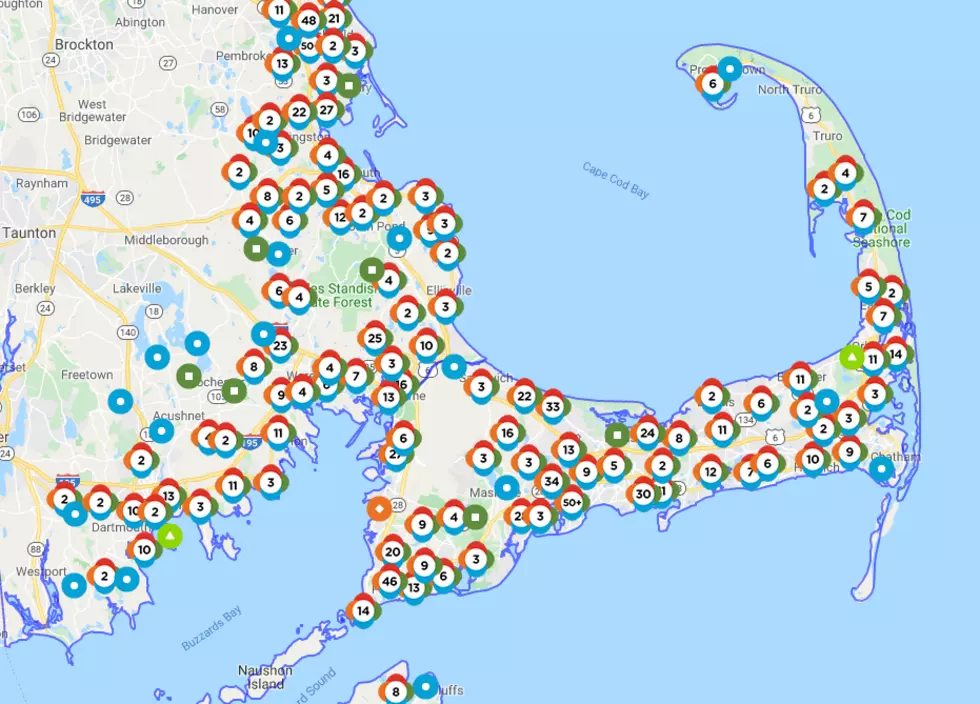
Vineyard Wind’s Opening Price Draws Praise
BOSTON — Vineyard Wind's electricity price quote, which was unveiled in contract filings last week, pleasantly surprised the environmental community and the Bay State's industrial sector, two constituencies that often spar over power policy.
"We're very encouraged by the contract. The prices came in at a very competitive rate," said Robert Rio, senior vice president of the Associated Industries of Massachusetts.
"It's extraordinary," said Greg Cunningham, director of the Conservation Law Foundation's Clean Energy and Climate Change Program. "It really demonstrates just how far offshore wind has come from prices for Cape Wind that were four times this amount originally."
New England Power Generators Association Dan Dolan, who opposes favorable consideration given to specific types of power production like the carve-out for offshore wind, said the 6.5 cents per kilowatt hour price of Vineyard Wind's clean power is "a little bit less than double the average wholesale electricity price in New England in 2017."
Vineyard Wind's proposal to build 800 megawatts of offshore wind capacity in the waters 15 miles south of Martha's Vineyard won approval from the state's utilities in May. Last week, utilities filed proposed long-term contracts to the Department of Public Utilities that revealed the prices.
A report by the independent evaluator, Peregrine Energy Group, indicates that even Eversource, a utility that collaborated with the Danish company Ørsted on a rival project called Bay State Wind, got behind Vineyard Wind's proposal.
"National Grid and Unitil recommended selection of the Vineyard Wind 800 MW [generation lead line] proposal," Peregrine wrote. "Eversource recommended selection of the Vineyard Wind 400 MW [generation lead line] proposal."
A spokesperson for the utility indicated that Vineyard Wind's low-price was a major factor in Eversource's recommendation.
"Massachusetts regulators laid out a clearly defined process for the electric distribution companies to follow when evaluating the offshore wind project bids, with 75 percent of the weight being given to price," Eversource spokesperson Priscilla Ress wrote in an email. "The evaluation team chose Vineyard Wind as the project that best met the selection criteria, and the companies then entered into contracts to purchase electricity from the project at a very competitive price."
According to the Baker administration, the pricing is similar to those seen in Europe, where offshore wind is an established industry.
The numbers are quite different from about six years ago, when the Department of Public Utilities approved power purchase deals for Cape Wind, which once aimed to become the nation's first offshore wind project and finally abandoned its plans late last year.
Under that agreement, Cape Wind would have sold its power for 18.75 cents per kilowatt hour with annual increases of 3.5 percent - putting it around 22 cents per kilowatt hour today. Over the course of its 20-year agreement, Vineyard Wind's power would have a "levelized" price of about 6.5 cents per kilowatt hour, according to the Department of Energy Resources (D.O.E.R.).
The offshore wind energy price looks like a "bargain and a half," but it is difficult to determine what the total impact would be on ratepayers, according to Steve Dodge, the executive director of the Massachusetts Petroleum Council who said it would be difficult to make an apples to apples comparison of offshore wind power to other energy source.
"There's a lot of different variables and types of fruit in that basket," Dodge said.
According to Vineyard Wind, the price includes the cost of transmitting the power to the electric grid.
The office of Attorney General Maura Healey will participate in the DPU process as the state's ratepayer advocate. A DPU hearing has not yet been scheduled.
D.O.E.R. estimated it would reduce customers' bills "all else being equal" by 0.1 percent to 1.5 percent.
Vineyard Wind would provide total net direct and indirect benefits to ratepayers valued at $1.4 billion, according to D.O.E.R., which said the project would include $10 million for an offshore wind energy accelerator fund, $2 million for workforce development, and $3 million to protect marine mammals. Over 15 years, Vineyard Wind would contribute $15 million toward the construction of energy storage and solar projects for "enhancing resiliency and providing low-income ratepayer benefit in the communities hosting the Vineyard Wind Project."
The projected reduction in utility bills is a reversal from Vineyard Wind's controversial predecessor in the waters south of Massachusetts, Cape Wind, which folded late last year after more than a decade of local opposition. The more recent project also has firmer regulatory footing than Cape Wind, which tried to pioneer offshore power.
"Cape Wind picked their profit-maximizing site in the center of Nantucket Sound because it was good for them," said Audra Parker, president and CEO of the Alliance to Protect Nantucket Sound, who opposed the project and said Cape Wind largely ignored groups that had concerns. She said, "By contrast, Vineyard Wind and the other projects that are south of the Vineyard went through a stakeholder process" and it has done a "better job of working with the community than Cape Wind ever did."
Parker wants Congress to bar offshore wind development from the water body between Cape Cod and the islands, and she said she is generally supportive of Vineyard Wind, but wants to ensure that it doesn't open the door to another project in Nantucket Sound.
"Our concern was and remains that if they run their transmission lines through Nantucket Sound that some future project could interconnect to it," said Parker, who said there have been productive discussions with Vineyard Wind about that. She said, "Vineyard Wind's pricing is quite low compared to Cape Wind and compared to existing projects in Europe so I would like to look into more detail on that."
Steve Pike, CEO of the Massachusetts Clean Energy Center, attributes the low cost to the competition fostered by the 2016 law calling for diversification of energy and the selection process overseen by the Baker administration.
"I think it's that competition that really drove the costs down," Pike said. The "surprisingly low" price offered by Vineyard Wind will benefit ratepayers and help spur the nascent industry in the United States, Pike said.
In late 2016, the company Deepwater Wind completed the first offshore wind project in the country with five turbines off the coast of Block Island.
"You're talking about an industry now that is competitive with just about any other traditional energy resource," said Sen. Marc Pacheco, a Taunton Democrat, who helped negotiate an energy bill delivered to Gov. Charlie Baker last week.
The bill could increase opportunities for offshore wind development in Massachusetts along the lines of the procurement that ended earlier this year, and Pacheco said the legislation would also facilitate consideration of the undersea electric grid so that "we don't have a bowl of spaghetti on the ocean floor."
The 2016 energy diversification law specifies that under D.O.E.R.'s procurement schedule, DPU can only approve a long-term contract with an offshore wind generator if the "levelized price per megawatt hour, plus associated transmission costs" is lower than those costs from the prior procurement.
Given the successes that the power generation sector has already made in greenhouse gas reductions, policymakers should turn their attention to the pollution emitted by motor vehicles and buildings, according to the head of the power plant association.
"Power plants have cut CO2 emissions nearly 60% since 1990, almost double the reductions in any other sector of the economy. And yet, virtually every public policy proposal on climate change has been focused on electricity. The low hanging fruit has been picked," Dolan said in an email. "A comprehensive view in places like transportation and buildings is long past due if we're truly serious about reducing emissions. Those two sectors emit more CO2 than power plants in Massachusetts and across New England."
More From WFHN-FM/FUN 107


![The Proper Way to Consume a Cucumber [POLL]](http://townsquare.media/site/519/files/2020/08/Untitled-design-18.jpg?w=980&q=75)






